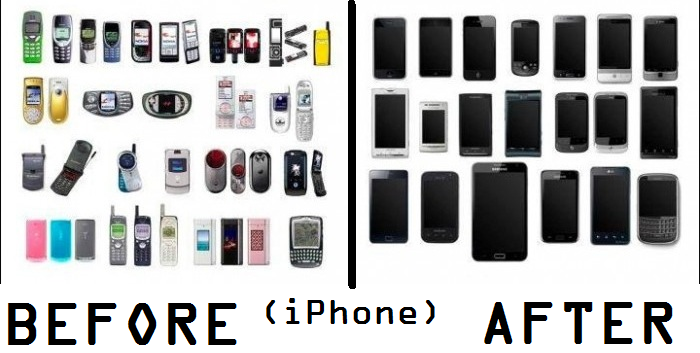The Authority of Authority in the Decline of Religion
Within the Church there are different sources of authority that have held the prized position over the ages. For instance, the early Church prized the authority of Tradition which was part of the complaint of the Protestant Reformation. Reformers believed that Scripture should be put in the prized position. During the Enlightenment, Scripture's authority was questioned as superstitious and antiquated which is why Reason began to take the prized position of authority. With the rise of post-modernity the reign of the individual Experience began as authoritative in the world.
And so we find ourselves in a time where we are in series of conversations about source will take the prized position of authority. We see this in American politics as we debate what is most authoritative - the Constitution? The Bill of Rights? The President? Congress? Courts? States or Federal laws?
Likewise we see the debate over prized authority in the Church.
I would submit that the shifting American Religious landscape is all about Authority. The rise of the "Bible Church" tells you what has the prized position of authority. The efforts bridging science and theology often reflect the prized position of reason. The exodus of Evangelicals to the Mainline might reflect the authority of Tradition while the rise of the "spiritual but not religious" may reflect those prizing Experience.
The sources of authority are not limited to these four to be sure. What might be missing in the entire conversations about the decline of religion, the rise of secularism, and the overall changing of values in the United States (and perhaps the world?) is conversation about what should have the prized position of authority in our time. And more specifically, and perhaps more tragically, the conversation to learn to live with the complex reality that there are many valid and different sources of authority.
Christians say God is Three in One and One in Three (the Trinity), as a way of saying that God is too mysterious to put just one name on. Likewise, authority is too complex to limit ourselves to just one source. The authority of authority is the conversation happening under the conversation. The authority of authority is what nudges us into different camps. It is the authority of authority that can also be the path to consensus building.
Preacher of the Month - June
In a new and ongoing effort to highlight the different voices around the United Methodist world that I live in, I would like to introduce you to Rev. Joseph Nader, the Preacher of the Month (June 2015).
I invite you to also spend time to learn more about him in the full write up here.
Rev. Joseph Nader and family
Embracing Irrelevance as the Future of the Church
On May 22nd a blogger wrote this post which connects the fear/anxiety that Main/Old line denominational leaders have over the recent Pew Religious report and deep wisdom from a little Catholic priest named Henri Nouwen. While the recent Pew report shows that over 1/3 of Millennials are religiously "unaffiliated", Henri Nouwen wrote years ago:
The leaders of the future will be those who dare to claim their irrelevance in the contemporary world as a divine vocation that allows them to enter into a deep solidarity with the anguish underlying all the glitter of success, and to bring the light of Jesus there.
Writer and Millennial herself Amy Peterson wrote that when it comes to church affiliation she wants a, "service that is not sensational, flashy, or particularly “relevant”. I can be entertained anywhere. At church, I do not want to be entertained. I do not want to be the target of anyone's marketing. I want to be asked to participate in the life of an ancient-future community."
The thing about relevancy is that what I think is relevant is relevant - to me but probably not you. I am interested in things that you are not and you are interested in things that I am not. To build a worship service or even a leadership core with the value of "relevancy" chances are our worship service and our leadership will be gimicy , overly stylized, and plastic. Additionally, and perhaps more importantly, focusing on relevancy leads to the missing out on what could be.
Not to pull out the cliche, but when Steve Jobs presented the iPhone for the first time there were many people who thought it was a bust - it did not have a keyboard, it did not have stylus, it did not have a protected screen, etc. Needless to say, many people thought it to be irrelevant.
Steve Jobs did not give a rip. He was set to address problems and a world that few could see coming. And for years the iPhone was the gold standard (and still is among many). Not to equate the two, but Jesus was not in hot pursuit of being relevant. He was a backwater itinerant preacher who made up stories that confounded the people and did not live into a common wish for a military leader or forceful king. When he made it to the heart of Jerusalem he quickly became the center of all hate and venom, and instead of changing his message to relevant he kept his eyes on the cross.
Chasing relevancy is rooted not in our call to serve Christ but to serve a market we are afraid to loose. Chasing relevancy is a symptom of our fear not an expression of our faithfulness. Chasing relevancy is a lack of trust that the Holy Spirit will translate our works and perfect them to bring about reconciliation, wholeness and the Kingdom of God.

Be the change by Jason Valendy is licensed under a Creative Commons Attribution-NonCommercial-ShareAlike 3.0 Unported License.





